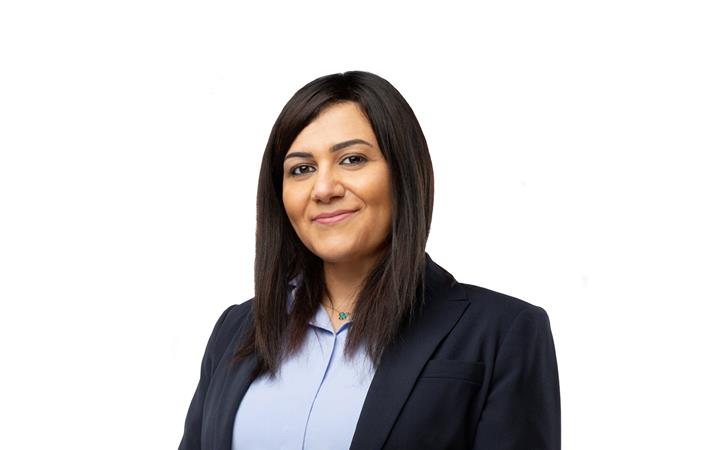Professor Niveen Khashab receives 2023 Cram Lehn Pedersen Prize in Supramolecular Chemistry

Portrait of KAUST Professor of Chemistry Niveen Khashab, recipient of the 2023 Cram Lehn Pedersen Prize in Supramolecular Chemistry. Photo: KAUST
KAUST Professor of Chemistry and Chemistry Program Chair Niveen Khashab has received the 2023 Cram Lehn Pedersen (CLP) Prize in Supramolecular Chemistry, one of the highest international awards given in this field.
Named in honor of the 1987 Nobel Prize in Chemistry winners — Donald James Cram, Jean-Marie Lehn and Charles John Pedersen — the CLP prize recognizes significant,original and independent work in the field of supramolecular chemistry. The CLP Prize is sponsored by Chemical Communications (ChemComm), the Royal Society of Chemistry's journal for urgent communications of outstanding significance across the chemical sciences.
Professor Khashab will give a talk at the 2023 International Symposium on Macrocyclic and Supramolecular Chemistry in Reykjavik, Iceland, this June, where she will receive the award and a monetary honorarium of £2,000.
"It is a great honor to receive this prize that is named after the first three Nobel Prize winners in supramolecular chemistry. It is an international award, so the competition was extremely strong," Khashab said of her award win.
An expert in functional material, the KAUST founding faculty specifically researches supramolecular chemistry and the self-assembly patterns of organic molecules. She specializes in the design, synthesis and applications of "smart" programmable nanomaterials, with an emphasis on the systems' encapsulation, controlled release and self-assembly.Inspired by the model of evolutionary biological systems, Khashab's laboratory, the Smart Hybrid Materials (SHMs) lab, is engaged in the design and synthesis of supramolecular assemblies at the nanoscale employing non-covalent and coordination interactions.
"These systems are designed with an emphasis on hierarchical assembly (evolution), porosity (ordered self-assembly) and stimuli-responsiveness (smart materials). They are utilized for biomedical (encapsulation, delivery and sensing), industrial (nanocomposites and coatings) and environmental (sustainable agriculture) platforms," she said.
Khashab firmly believes that the SHMs' goals align with current in-Kingdom initiatives such as Saudi Vision 2030, especially regarding health and wellness, energy and sustainability and materials for new economies.
"With health and wellness, our work focuses on delivery systems for smart vaccination and precision agriculture. We synthesize and design new materials for energy and sustainability that will work for energy-intensive separations using very low energy and water as solvents rather than harmful organic compounds," she said. "And for materials for new economies, our group is designing new stimuli-responsive polymeric composites to be used in soft robotics for smart cities' development."
The head of the Chemistry Program at KAUST has received several prestigious awards during her career, including the Crow Award in Organic Chemistry in 2004, the Almaraai Award for Nanotechnology in 2013 and the L'Oréal-Unesco Women in Science International Award in 2017. In 2021, she was named a Fellow of the Royal Society of Chemistry.
Khashab has been a strong advocate for female scientists worldwide and for female education in the Gulf region for decades. She considers KAUST to be a continuous source of support for her scientific endeavors and achievements.
"I would like to thank President Tony Chan, Provost Lawrence Carin, and Vice President for Research Pierre Magistretti for their strong support, especially for empowering women researchers on campus," she said.
Related links

